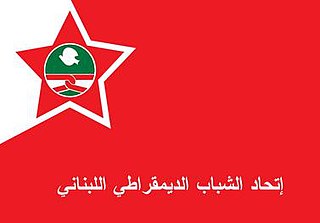External links
- School’s Out in London and Steve ‘Ginger’ Finch
- "Schools Action Union"|"National Union of School Students"
The National Union of School Students was a short lived British organisation founded in 1972. It campaigned for improvements in school education, for democracy in the systems used to manage schools and the taught curriculum. Major campaigns included opposition to compulsory school uniform, prohibiting any physical punishment, supporting teaching staff in pay and conditions struggles and freeing the Brockwell Three.
The NUSS had a national and district (branch) structure. The SW London Branch was very active from a number of comprehensive schools. The development of tactics and strategy was commonly in unison with North London school, NUSS members.
With a grant from the Calouste Gulbenkian Foundation, the union published the magazine Blot which featured the early work of the cartoonist Steve Bell.

The Industrial Workers of the World (IWW), nicknamed "Wobblies", is an international labor union founded in Chicago in 1905. The nickname's origin is uncertain. Its ideology combines general unionism with industrial unionism, as it is a general union, subdivided between the various industries which employ its members. The philosophy and tactics of the IWW are described as "revolutionary industrial unionism", with ties to socialist, syndicalist, and anarchist labor movements.

The National Union of Students (NUS) is a confederation of student unions in the United Kingdom. Around 600 student unions are affiliated, accounting for more than 95% of all higher and further education unions in the UK. Although the National Union of Students is the central organisation for all affiliated unions in the UK, there are also the devolved national sub-bodies NUS Scotland in Scotland, NUS Wales in Wales and NUS-USI in Northern Ireland.

The Oxford University Student Union is the official students' union of the University of Oxford. It is better known in Oxford under the branding Oxford SU or by its previous name of OUSU. It exists to represent Oxford University students in the university's decision-making, to act as the voice for students in the national higher education policy debate, and to provide direct services to the student body. The president for the 2023–24 academic year is Danial Hussain.

The Solidarity Federation, also known by the abbreviation SolFed, is a federation of class struggle anarchists active in Britain. The organisation advocates a strategy of anarcho-syndicalism as a method of abolishing capitalism and the state, and describes itself as a "revolutionary union". In 1994 it adopted its current name, having previously been the Direct Action Movement since 1979, and before that the Syndicalist Workers' Federation since 1950.
A students' union, also known by many other names, is a student organization present in many colleges, universities, and high schools. In higher education, the students' union is often accorded its own building on the campus, dedicated to social, organizational activities, representation, and academic support of the membership.

Socialist Alternative (SA) is a Trotskyist organisation in Australia. As a revolutionary socialist group, it describes itself as aiming to organise collective struggles against oppression and inequality while promoting the need for a revolutionary movement that could one day overthrow capitalism. Its members have organised numerous campaigns and protests around LGBT rights, climate change, racism, refugee rights and more. The organisation also intervenes in the trade union and student union movements. It has branches and student clubs in most major Australian cities and publishes the fortnightly newspaper Red Flag.
Wyatt Tee Walker was an African-American pastor, national civil rights leader, theologian, and cultural historian. He was a chief of staff for Martin Luther King Jr., and in 1958 became an early board member of the Southern Christian Leadership Conference (SCLC). He helped found a Congress for Racial Equality (CORE) chapter in 1958. As executive director of the SCLC from 1960 to 1964, Walker helped to bring the group to national prominence. Walker sat at the feet of his mentor, BG Crawley, who was a Baptist Minister in Brooklyn, NY and New York State Judge.
James Harris is an American communist politician and member of the National Committee of the Socialist Workers Party. He was the party's candidate for President of the United States in 1996, receiving 8,463 votes, and again in 2000, receiving 7,378 votes. Harris also served as an alternate candidate for Róger Calero in 2004 and 2008 in states where Calero could not qualify for the ballot due to being born in Nicaragua. More recently Harris was the SWP candidate in the 2009 Los Angeles mayoral election, receiving 2,057 votes (0.89%).
The People's Socialist Union is an Ivorian political party based in London.
The Queensland Teachers' Union is an Australian trade union with a membership of more than 46,000 teachers and principals in the Queensland Government's primary schools, secondary schools, special schools, senior colleges, TAFE colleges and other educational facilities. More than 96 per cent of eligible teachers are members. As well as protecting the rights and conditions of its members, the QTU also sees the promotion of public education as a major part of its role.
Socialist Students is a socialist organisation with branches in universities, further education colleges and sixth form colleges in the United Kingdom. Socialist Students was established in the late 1990s by members of the Socialist Party (SP) who had built support for the Save Free Education Campaign amongst students in the battle over the introduction of fees when the Labour Party under Tony Blair was elected in 1997.
Solidarity is a Trotskyist organisation in Australia. The group is a member of the International Socialist Tendency and has branches in Melbourne, Sydney, Brisbane, Canberra, Adelaide and Perth. The organisation was formed in 2008 from a merger between groups emerging from the International Socialist tradition: the International Socialist Organisation, Socialist Action Group and Solidarity.

The Young Greens of England and Wales (YGEW) is the official youth branch of the Green Party of England and Wales (GPEW). All members of the GPEW who are under 30 years old and/or full or part-time students are members of the Young Greens and are allowed to get involved with their activities.

Internal resistance to apartheid in South Africa originated from several independent sectors of South African society and took forms ranging from social movements and passive resistance to guerrilla warfare. Mass action against the ruling National Party (NP) government, coupled with South Africa's growing international isolation and economic sanctions, were instrumental in leading to negotiations to end apartheid, which began formally in 1990 and ended with South Africa's first multiracial elections under a universal franchise in 1994.

Union of Lebanese Democratic Youth (ULDY), also known as UJDL, is a Lebanese leftist secular democratic youth organization as it defines itself in its documents. ULDY was legally established in 1970 by leftist—mainly communist—students and young activists, after being active underground since 1945.

The 2010 United Kingdom student protests were a series of demonstrations in November and December 2010 that took place in several areas of the country, with the focal point of protests being in central London. Largely student-led, the protests were held in opposition to planned spending cuts to further education and an increase of the cap on tuition fees by the Conservative–Liberal Democrat coalition government following their review into higher education funding in England. Student groups said that the intended cuts to education were excessive, would damage higher education, give students higher debts, and broke campaign promises made by politicians.

The anti-austerity movement in the United Kingdom saw major demonstrations throughout the 2010s in response to Conservative-Liberal Democrat coalition government's austerity measures which saw significant reductions in local council budgets, increasing of university tuition fees and reduction of public spending on welfare, education, health and policing, among others. Anti-austerity protests became a prominent part of popular demonstrations across the 2010s, particularly the first half of the decade.
The National Campaign Against Fees and Cuts (NCAFC) or Student Left Network is a membership-based organisation of activist students and education workers campaigning against tuition fees, education cuts and privatisation in the United Kingdom.

For our Future's Sake (FFS) was a student-led pressure group supporting a referendum on the Brexit withdrawal agreement. It represented at least 60 Students’ Unions, and 980,000 students, across the UK.
The Schools Action Union (SAU) was a British students' union for school children active in the early 1970s. It formed at the Free School Campaign (FSC) conference of January 1969 from attendees who did not want to follow the non-political path chosen by the FSC. The SAU set out a list of aims that included the abolition of corporal punishment in schools and the transition of all schools to become comprehensive and co-educational. A number of journals were published and the union, which became dominated by Maoists, organised significant school strikes in May 1972. The SAU dissolved in 1974 but the abolition campaign continued and saw corporal punishment banned nationally in all state schools in 1986; though non-comprehensive and single sex schools continue.